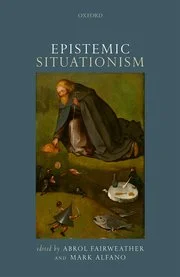Emotions and reactive attitudes in Nietzsche
/There are five papers in the current issue. The first two address epistemic emotions in Nietzsche’s philosophy. In “Experimentation, Curiosity, and Forgetting,” Rebecca Bamford explores the Nietzschean virtue of curiosity, which is associated with the epistemic emotion of inquisitiveness. She argues that curiosity is best understood in the context of Nietzsche’s “campaign against morality,” which he associates with the figures of the free spirit and the philosophers of the future. Finding things out requires living experimentally, which in turn is opposed to the rigid strictures of traditional morality. Bamford also asks whether curiosity is compatible with Nietzsche “positive account of active forgetting.” She answers in the affirmative, suggesting that forgetting aids “memorial courtesy” towards both oneself and others, and that such courtesy or politeness assists rather than impedes inquiry.
The next paper, by Rachel Cristy, is titled, “‘Being Just is Always a Positive Attitude’: Justice in Nietzsche’s Virtue Epistemology.” Her title is a quote from GM II.11, in which Nietzsche contrasts a notion of justice grounded in revenge and resentment, on the one hand, with his own notion of a virtue of justice that “is a piece of perfection and supreme mastery on earth.” Cristy argues that Nietzschean justice is an epistemic rather than a practical virtue. It is a disposition, she says, to “give everything -- every person, event, institution, or idea, past or present -- its due: to accord it the correct amount of importance and value, credit and blame.” And, according to Nietzsche, this epistemic activity is typically attended by “the pathos” of “the office of the judge” (HL 6), which foreshadows his later conception of perspectivism. In addition, like Bamford, Cristy associates epistemic virtues and emotions with the figure that Nietzsche sometimes calls the “philosopher of the future.”
The next two papers focus primarily on the emotion of disgust. In “Nietzsche on Nausea,” Gudrun von Tevenar argues that Nietzsche talks about and aims to induce in his readers “the affective force of nausea as part of his effort to render his readers receptive” to changing their values. Disgust is instrumental to dislodging traditional values. Despite the obvious difference between disgust and curiosity, then, von Tevenar agrees with Bamford that Nietzsche marshalls emotions to oppose traditional morality. Indeed, she thinks that Nietzschean disgust serves (among others) an epistemic purpose: getting us to “open our eyes” to the “sickness and degeneracy” of extant values. However, von Tevenar concludes on a critical note, arguing that Nietzsche’s own nausea is overblown, indiscriminate, and downright pathological. Hence, we should accept his lesson that disgust can be instructive without following him down the “dangerous” path of omni-disgust.
In “Nietzsche, Self-Disgust, and Disgusting Morality,” Joel van Fossen agrees with von Tevenar that disgust can be dangerous. He focuses in particular on disgust at oneself, which he argues is characteristic of the “ascetic type” of person and the morality embodied by that type. In particular, dispositional self-disgust makes one vulnerable to Christian guilt. Van Fossen argues, however, that despite the danger of self-disgust, Nietzsche thinks that disgust at certain harmful moral systems and values -- namely, those that are liable to be infectious or contagious -- is an appropriate response. In this way, van Fossen also ends up agreeing with von Tevenar about the instrumental use to which Nietzsche puts disgust: it is meant to target and dislodge unhealthy moral values. Unlike von Tevenar, however, van Fossen thinks that Nietzsche’s own disgust is not pathological insofar as it successfully enables him to avoid and stay uncontaminated by “disgusting moralities.”
Finally, in “Loving the Eternal Recurrence,” Neil Sinhababu and Kuong Un Teng try to make sense of the emotionally bivalent responses that Nietzsche expects the thought of the Eternal Recurrence to provoke: either abject horror or boundless love. Along the way, they argue for a hybrid account of the Eternal Recurrence in Nietzsche’s philosophy. On the one hand, it is a cosmological conjecture; on the other hand, what matters about it is one’s attitude towards the possible truth of the conjecture. “To consider the Eternal Recurrence,” they argue, “is to consider getting what you desire and what you’re averse to, to an infinitely greater degree than one mortal life could provide.” Thinking about the Eternal Recurrence is thus a way of intensifying whatever attitude one already possesses towards one’s own life. To bolster this interpretation, Sinhababu and Kuong close-read relevant passages from Thus Spoke Zarathustra to show how the character of Zarathustra first becomes vaguely aware of the idea of the Eternal Recurrence, refuses for a time to voice his “most abysmal thought,” is overcome by disgust at the thought of the Eternal Recurrence, then has an emotional breakthrough that results in his joyful affirmation of the Eternal Recurrence.





Mark Alfano. Cambridge University Press (2013).